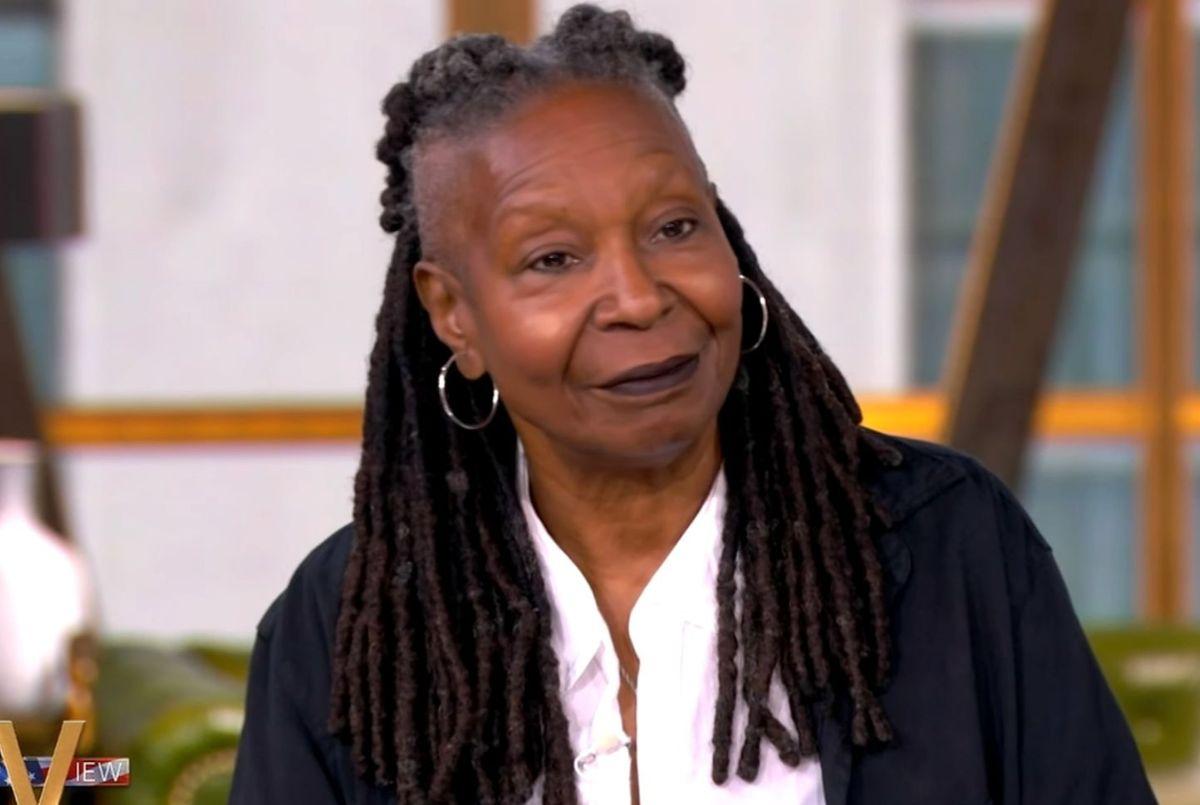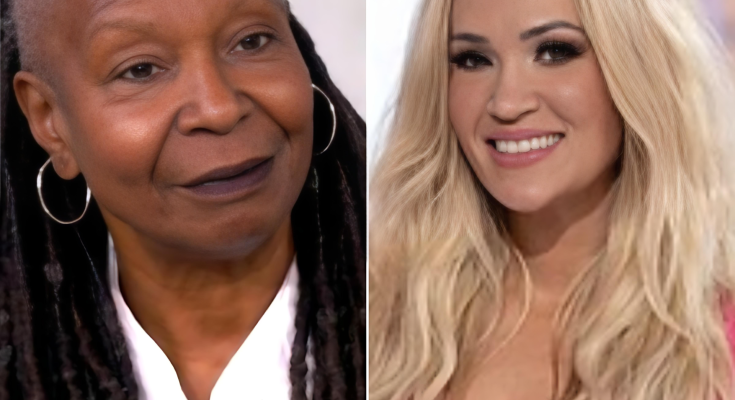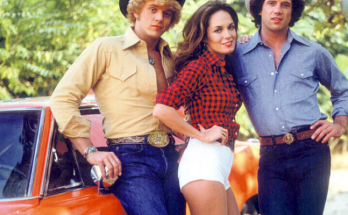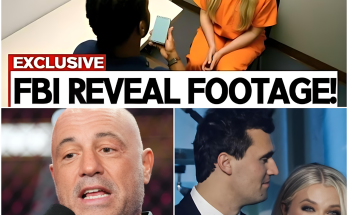On August 13, 2025, the entertainment world was rocked by a bombshell announcement: country music superstar Carrie Underwood has filed a staggering $50 million lawsuit against ABC, The View, and its veteran co-host Whoopi Goldberg, accusing them of “intentional, malicious defamation.” The lawsuit stems from what Underwood’s legal team describes as a “vicious and calculated attack” during a January 2025 episode of the popular daytime talk show. Underwood’s powerful statement, “You humiliated me on live TV — now it’s your turn to face the fallout,” encapsulates the intensity of this legal battle, which promises to be a defining moment in the ongoing debate over media accountability and the treatment of public figures.
The controversy originated during a segment of The View, where hosts Joy Behar, Whoopi Goldberg, Sunny Hostin, Sara Haines, Ana Navarro, and Alyssa Farah Griffin discussed Underwood’s decision to perform at the 2025 presidential inauguration of Donald Trump. The choice sparked polarized reactions online, with some praising Underwood’s commitment to national unity and others criticizing her for aligning with a controversial political figure. During the discussion, Goldberg reportedly delivered an eight-word remark that Underwood’s team claims crossed a line: “When are you going to stop feeding the public a lie?” The comment, interpreted as an attack on Underwood’s authenticity and personal integrity, plunged the studio into an awkward silence and ignited a firestorm of backlash from her fans.
Underwood, a seven-time Grammy winner and one of country music’s most beloved figures, alleges that the remark was not a spontaneous jab but part of a calculated effort to humiliate her in front of millions. Her lawsuit contends that the hosts, particularly Goldberg, engaged in a deliberate attempt to tarnish her reputation for the sake of ratings, exploiting her decision to perform at the inauguration as a pretext for personal attacks. The legal filing cites “emotional distress, reputational harm, and defamation,” arguing that the comment falsely implied Underwood was deceitful in her public persona, a charge that could have lasting consequences for her career and public image.
The fallout from the episode was swift and intense. Fans rallied behind Underwood, launching the hashtag #StandWithCarrie, which trended nationwide within hours. Social media platforms were flooded with messages condemning The View for what many perceived as an unfair and personal attack. Celebrities and fellow musicians also voiced their support, amplifying the narrative that Underwood was unfairly targeted. In her statement accompanying the lawsuit, Underwood declared, “This isn’t just for me. It’s for every artist, creator, and public figure who has ever been humiliated for ratings. We pour our hearts into our work, and we deserve better than to be treated as disposable fodder for controversy.” Her words have resonated deeply, framing the lawsuit as a broader stand against media overreach.
ABC and The View have found themselves in a precarious position. Sources close to the network suggest that executives were blindsided by the severity of the backlash and are now grappling with the legal and reputational consequences. The network issued a brief statement expressing regret for any distress caused but has refrained from commenting further, likely due to the ongoing litigation. Legal experts, however, are closely watching the case, noting its potential to set a precedent for how media outlets handle commentary about public figures. Media attorney Janet Klein remarked, “This lawsuit isn’t about stifling free speech—it’s about demanding accountability. When you have a platform that reaches millions, your words carry weight, and there must be consequences for crossing ethical lines.”

The case also highlights broader tensions within the media landscape. Daytime talk shows like The View thrive on lively debate and provocative commentary, but the line between critique and cruelty can be thin. Underwood’s lawsuit raises questions about where that line should be drawn, particularly when public figures—especially women—are subjected to personal attacks disguised as entertainment. The controversy has sparked a larger conversation about the ethics of media commentary and the responsibility of influential platforms to balance bold opinions with respect for individuals’ dignity.
For Underwood, this legal battle is about more than financial compensation; it’s about reclaiming her narrative. Since rising to fame on American Idol in 2005, she has built a career defined by authenticity, faith, and resilience. Her decision to perform at the inauguration, as she explained in a Newsweek interview, was rooted in a desire to promote unity: “I love our country and am honored to have been asked to sing at the Inauguration.” The suggestion that her motives were insincere struck a deep chord, prompting her to take a stand not just for herself but for others who have faced similar media scrutiny.

As the legal proceedings unfold, the entertainment industry and the public are watching closely. If Underwood prevails, the case could embolden other celebrities to pursue legal action against media outlets for defamatory remarks, potentially reshaping the dynamics of public discourse. Conversely, a dismissal could reinforce the notion that public figures are fair game for criticism, no matter how personal. Either way, this lawsuit has already succeeded in sparking a vital conversation about the power of media, the boundaries of free speech, and the human cost of sensationalism. For now, Carrie Underwood stands firm, ready to fight for justice in a battle that is as much about principle as it is about personal vindication.



